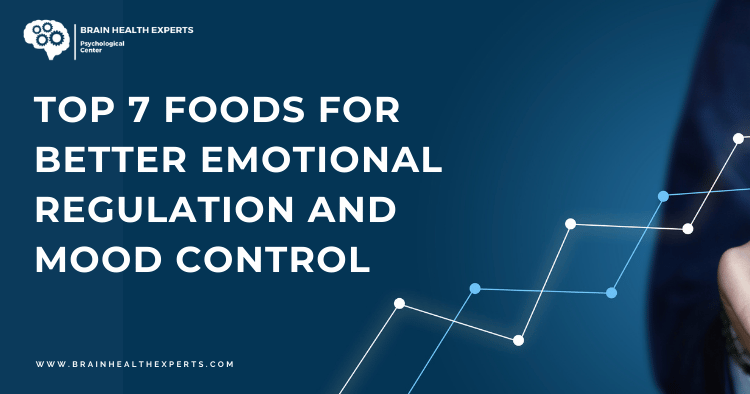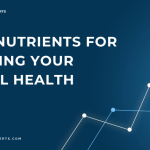Table of Contents
- Introduction
- 1. Fatty Fish
- 2. Dark Chocolate
- 3. Berries
- 4. Leafy Greens
- 5. Nuts and Seeds
- 6. Whole Grains
- 7. Fermented Foods
- Conclusion
- FAQs
Introduction
In our fast-paced world, emotional regulation is more important than ever. The foods we consume can significantly impact our mood and emotional well-being. Research has shown that certain nutrients play a crucial role in brain health, neurotransmitter function, and overall mood stability. This article explores the top seven foods that can help enhance emotional regulation and mood control, along with tips on how to incorporate them into your diet.
1. Fatty Fish
Fatty fish, such as salmon, mackerel, and sardines, are rich in omega-3 fatty acids, which are essential for brain function and emotional health. Omega-3s have been linked to lower levels of depression and anxiety. They help reduce inflammation in the body and support the production of neurotransmitters like serotonin, often referred to as the “feel-good” hormone.
How to Enjoy: Aim for two servings of fatty fish per week. You can grill, bake, or even add canned salmon to salads for a nutritious boost.
2. Dark Chocolate
Did you know that dark chocolate can actually help elevate your mood? High-quality dark chocolate (70% cacao or more) is packed with antioxidants and can stimulate the production of endorphins, the body’s natural mood lifters. It also contains serotonin, which can further enhance feelings of well-being.
How to Enjoy: Choose dark chocolate with a high cocoa content and enjoy a small piece as a daily treat or incorporate it into smoothies and oatmeal.
3. Berries
Berries like blueberries, strawberries, and raspberries are not only delicious but also rich in antioxidants, vitamins, and fiber. They help combat oxidative stress and inflammation, which can negatively impact mood. Additionally, berries are a great source of vitamin C, which has been shown to reduce anxiety and stress levels.
How to Enjoy: Add a handful of mixed berries to your breakfast cereal, yogurt, or smoothies, or simply enjoy them as a snack.
4. Leafy Greens
Leafy greens such as spinach, kale, and Swiss chard are nutritional powerhouses. They are high in folate, a B-vitamin that plays a vital role in mood regulation. Low levels of folate have been associated with a higher risk of depression. Furthermore, these greens are also rich in antioxidants and minerals that support brain health.
How to Enjoy: Incorporate leafy greens into salads, smoothies, or light sautés. You can also blend them into soups for a nutritious twist.
5. Nuts and Seeds
Nuts and seeds, particularly walnuts, almonds, and flaxseeds, are excellent sources of healthy fats, protein, and magnesium. Magnesium is essential for the production of serotonin and helps regulate mood. Studies have shown that a diet rich in nuts can contribute to improved mental health and reduced anxiety.
How to Enjoy: Snack on a handful of nuts, sprinkle seeds on your salads or yogurt, or blend them into smoothies for added texture and nutrition.
6. Whole Grains
Whole grains like brown rice, quinoa, and oats provide essential nutrients and fiber that help regulate blood sugar levels. Stable blood sugar is crucial for maintaining balanced energy and mood. Whole grains are also rich in B-vitamins, which are necessary for the production of neurotransmitters.
How to Enjoy: Swap out refined grains for whole grains in your meals. Try oatmeal for breakfast, quinoa in salads, or brown rice as a side dish.
7. Fermented Foods
Fermented foods like yogurt, kefir, sauerkraut, and kimchi are known for their gut health benefits. A healthy gut microbiome is closely linked to emotional regulation, as a significant portion of serotonin is produced in the gut. Probiotics from fermented foods can help balance gut bacteria, potentially improving mood and reducing anxiety.
How to Enjoy: Incorporate fermented foods into your diet by adding yogurt to smoothies, enjoying sauerkraut with meals, or using kefir in salad dressings.
Conclusion
Incorporating these seven foods into your diet can greatly enhance your emotional regulation and overall mood. Remember, a balanced diet, regular exercise, and proper sleep are all essential components of emotional well-being. By nourishing your body with the right foods, you’re not just feeding your physical health but also your mental health.
Also look for techniques to cultivate a positive mindset through various daily practices. For more insights, read our article on 10 Powerful Techniques to Cultivate a Positive Mindset.
FAQs
1. Can I eat these foods every day?
Yes! Many of these foods can be enjoyed daily. Aim for variety and balance in your meals.
2. Do I need to eliminate all other foods?
Not at all! It’s about incorporating more nutrient-rich foods into your diet. Moderation is key.
3. How long will it take to see results?
Results can vary, but many people report feeling improvements in mood within a few weeks of dietary changes.
4. Are there any specific recipes you recommend?
Absolutely! Consider trying a quinoa salad with leafy greens, berries, and nuts, or a smoothie made with yogurt, spinach, and a touch of dark chocolate.
5. Where can I find more information on nutrition and mental health?
For more detailed information, check out resources from the American Psychological Association and Harvard Health.
By embracing these dietary changes, you can take meaningful steps toward better emotional regulation and mood control. So, why not start today? Your mind and body will thank you!





